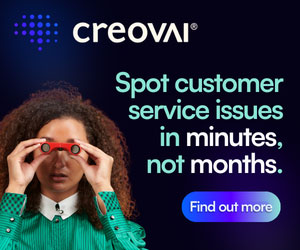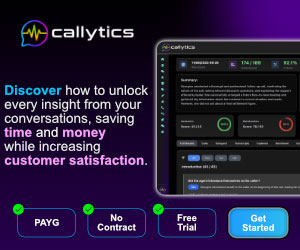Too many companies assume that once a customer is “won,” the job is done. But in today’s competitive marketplace, customer loyalty is no longer automatic, it must be earned every day.
When a customer receives a survey and feels nothing but indifference, it’s a red flag. Without real relationships, meaningful experiences, or signs of respect, even long-standing customers begin to wonder: Why should I remain a customer?
In this article, Dave Salisbury outlines three fundamental areas where organisations often fall short, and what they must do to improve if they want their customers to stay.
Three Fundamentals That Make or Break Customer Loyalty
1. Use Names and Titles Correctly

Daily, I get emails from companies claiming they “value me as a customer,” but they can’t even get my name right. They’ll call me “Michael,” or worse, “Mr Salisbury,” even though I’ve told them, in person, in writing, and on my account, that I prefer “Dave.”
This isn’t new technology. We’ve had the tools since the ‘90s to personalise communications. So why are companies still messing this up?
If a customer tells you their preferred name, use it. If they have a title, use it, and get it right. I worked hard to earn a PhD. I don’t expect everyone to call me “Dr Salisbury,” but it sure beats being called “mister” on every single message.
When I see a company get this wrong, I immediately wonder what else they’re not paying attention to. If they can’t use my name properly, even when I’ve given it to them, how much do they actually care about me as a customer?
Spoiler: not much.
2. Listen! Then Respond with Action
Here’s the problem with “active listening” in customer service: it’s easy to fake. Agents are trained to say “I understand,” and repeat your words back to you, but it’s all a performance. Customers know when they’re being heard and when they’re being handled.
If I say, “Call me Dave,” and you keep calling me “Mr Salisbury,” guess what? You didn’t listen. Or your system didn’t. Either way, I’m not sticking around.
The goal isn’t to respond with a script, it’s to reach a shared understanding. That’s called reflective listening. That’s where both sides walk away knowing exactly what’s happening next.
Too many times, I’ve told a company I’ve moved. Or that I no longer own a product. Or that I’ve already cancelled a service. And yet, the emails, the calls, the marketing, they keep coming.
It’s insulting. And exhausting. And it makes me wonder if I’m just a number in their system.
Listening without action is just noise. If you’re not going to do anything with what I said, don’t bother pretending to care.
For more on improving agents active listening skills, read our article: How to Train Active Listening in the Call Centre – With Exercises
3. Service is Why Customers Stay, Even at a Higher Price
I once paid extra, significantly more, for a simple container of mac & cheese from a supermarket deli. Why? Because the person behind the counter took time to remember me, wrapped it with care so it wouldn’t spill, and treated me like I mattered.
That’s it. That’s the whole reason I went back to that store again and again.
I’ve also had store employees slow down to walk with me when I’m using a cane. They didn’t rush ahead or act inconvenienced. They adjusted to my pace, and that, right there, made me a customer for life.
People don’t stay loyal because your product is cheaper. They stay because they feel respected, remembered, and treated with dignity. That kind of service beats any discount.
Yet too many businesses think service is just something you bolt on after the sale. It’s not. It is the reason for the sale, and the reason the customer comes back.
What About Customer Surveys?
If you’re going to ask for feedback, do something with it.
I recently filled out a survey packed with Likert-scale questions: rate this from 1–10, choose an emoji, click a face. Fine, I get it. It’s easy to track and report.
But I was 15 questions in before anyone bothered to ask why I gave those answers. And by then, I didn’t care anymore. Because without a place to tell the real story, without a place to say what really happened, the numbers mean nothing.
Worse, if I take the time to give feedback and never hear or see a change, I’ll stop responding. And I’ll stop being your customer.
Surveys should be treated like tools for action. That means reading the responses, looking for trends, responding to real concerns, and following up.
Don’t hide behind dashboards and sentiment scores. Get in the weeds. Talk to real people. Make changes.
If your surveys are just there to check a box, you’re wasting your customers’ time, and your own.
For more on using customer feedback to help improve your contact centre, read our article: Using Customer Feedback to Improve Agent Performance
Why Should I Stay Your Customer?
That’s the real question. Not once. Not at renewal. Not when something breaks.
Every single day.
Why should I stay your customer today?
If you can’t answer that clearly, with action, not slogans, then you’ve already lost me.
If you want to know more ways to keep your customers, read these articles next:
- Really Understand Why Your Customers Are Contacting You
- What is a Customer Satisfaction Score (and How to Calculate CSAT)
- 9 Ways to Encourage Customers to Give Feedback
Author: Dave Salisbury
Reviewed by: Hannah Swankie
Published On: 29th Sep 2021 - Last modified: 10th Dec 2025
Read more about - Expert Insights, Customer Feedback, Customer Journey, Dave Salisbury, Listening, Rapport




































